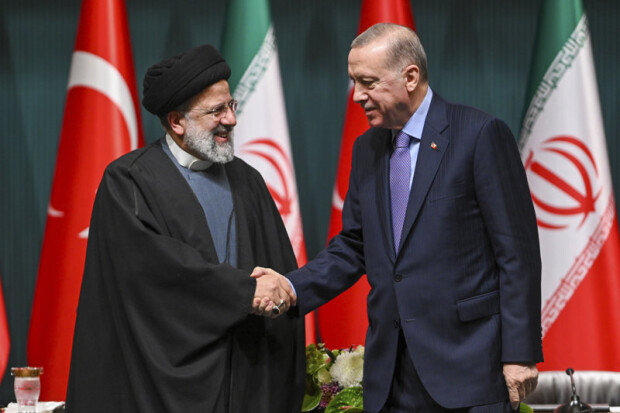Turkey, who used to side with Israel, now gets close to Iran
Turkey, who used to side with Israel, now gets close to Iran
Posted January. 26, 2024 07:50,
Updated January. 26, 2024 07:50

As tensions in the Middle East intensify with the prolonged war between the Palestinian armed group Hamas and Israel, Turkey and Iran are getting closer. The two countries share a common ground that they are both non-Arab countries in the Middle East where most countries are Arabic, even though they are divided into Sunni Islam and Shia Islam. Both Turkey and Iran support Hamas while criticizing Israel and are facing similar issues of financial crisis and dealing with the minority ethnic group Kurds.
According to Agence France-Presse, Turkish President Recep Tayyip Erdogan and Iranian President Ebrahim Raisi had a summit in Turkey’s capital, Ankara, on Wednesday. This was the first visit by President Raisi to Turkey since he took office in 2021.
The two leaders stated that Israel’s inhumane attacks in the Gaza Strip should be stopped to build peace during a press conference. They also signed an agreement for cooperation in energy and trade.
In particular, President Erdogan offered condolences to over 80 people who were killed in a bombing near the tomb of Qasem Soleimani, an Iranian military officer who served in the Islamic Revolutionary Guard Corps, on January 3. Islamic State, a Sunni extremist armed group, claimed that it was responsible for the attack. “Turkey is with Iran in a fight against terror (such as Islamic State),” said the Turkish president. Iranian President Raisi responded that it is great that Turkey supports Palestine. Iran claims itself to be a supporter of Hamas.
As President Erdogan continues his presidency, Turkey’s relations with the U.S., which criticizes the president’s extension of governing, began to sour. A large number of the Kurds, which are the largest minority ethnic group in Turkey and seeking independence, also reside in Iran and Iraq. The governments of both Turkey and Iran recognize the Kurds as the common enemy and are struggling with high inflation and the depreciation of their currencies.
The Turkish president expressed willingness to address the financial difficulties through bilateral cooperation. He emphasized that over 200 Turkish companies are still in Iran despite challenges, even after companies of many countries left the Middle East due to the continued sanctions imposed by the Western countries following the suspicion of Iran’s nuclear weapon development. Turkey is also the largest importer of Iranian natural gas.
pep@donga.com







